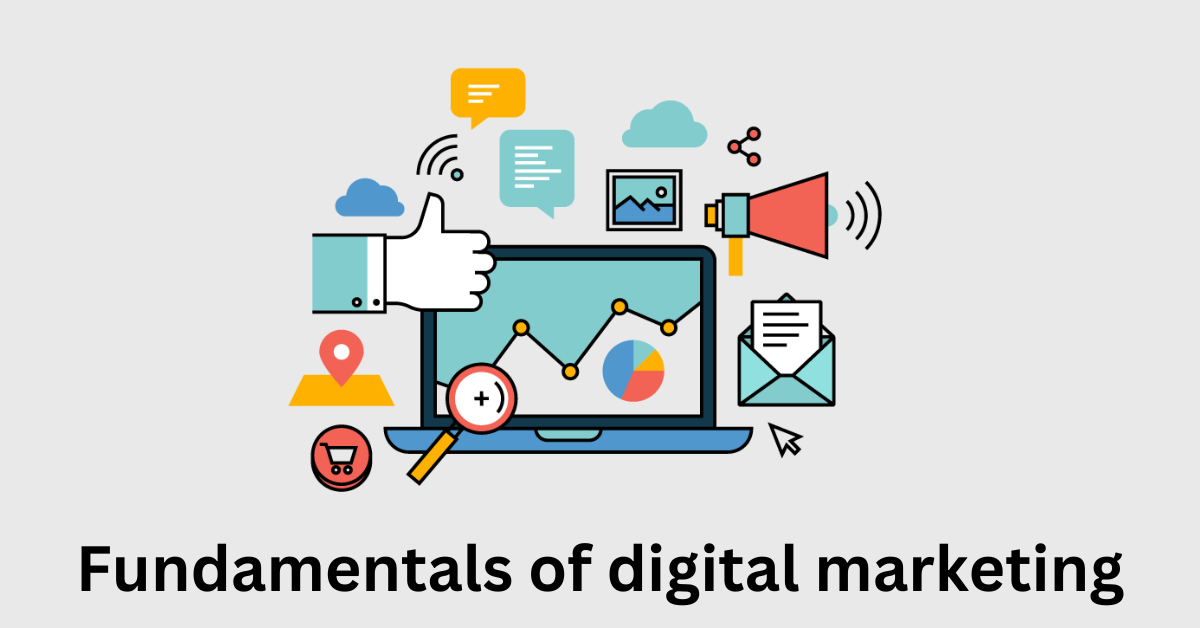Digital marketing is an essential part of any online business. With the world becoming increasingly digital, companies need a strong online presence to reach their target audience and stay competitive. However, many businesses are still struggling to understand the basics of digital marketing.
Table of Contents
ToggleUnderstanding Digital Marketing Channels
Digital marketing means promoting a brand, product, or service through various digital channels such as websites, search engines, social media, and mobile applications. It is an essential part of modern business strategy because it allows companies to reach and engage with their target audience more efficiently and effectively.
Social media is a powerful tool for reaching a large audience. Platforms such as Facebook, Twitter, and Instagram allow you to engage with your audience and build a community around your brand. Social media also help to promote your content and drive traffic to your website.
Email marketing is another effective way to reach your target audience. By sending targeted emails to your subscribers, you can promote your products and services to keep your audience informed about your latest updates. Search engines like, Google and Bing; are also critical components of digital marketing. Search engine optimization (SEO) involves optimizing your website and content to rank higher in search engine results pages (SERPs). This will help you reach more people searching for products or services related to your business.
Related: Is SEO cheaper than Social media marketing
Setting Goals & Objectives
Before starting your digital marketing process, it is necessary to set clear goals and objectives. This will help you stay focused and motivated as you work towards your aim.

Your goals should align with your overall business strategy and be specific, measurable, attainable, relevant, and time-bound (SMART). For example, if your business goal is to increase sales, your digital marketing goal could be to increase website traffic by 20% in the next six months.
After setting your goals, create an action plan to achieve your objectives. This plan should include the channels you will use, the content, and how you will measure your success. It is also crucial to regularly review and adjust your goals and objectives as your business evolves. For example, if your initial goal was to increase website traffic by 20% in the next six months and you exceed that goal, you may need to adjust your objective to a higher number.
Understanding Your Target Audience
A key aspect of digital marketing is knowing your target audience. This is important because it allows you to create content that speaks directly to your audience, which is easier to engage.

Before you start creating any content, it is good to do some research to understand who your target audience is. This research includes information about their demographics, behaviors, and preferences. This information will help you create content that resonates with your audience and makes a connection with them.
Another helpful tool in digital marketing is customer segmentation. This involves dividing your target audience into smaller groups based on common characteristics. For example, you may have one group of customers looking for affordable products and another set looking for high-end products. By understanding these different segments, you can create content that speaks directly to each group and is more personalized. When you fully understand your target audience, you can start creating content that speaks to them. These include blog posts, videos, and infographics. The goal is to create relevant and valuable content for your target audience.
Choosing The Right Channels
Digital marketing has many channels to select from. It can get overwhelming, but it is actually not as complicated as it seems.
The key to choosing the right channels is to understand your target audience and where they spend their time online. Are they active on social media? Do they prefer email? Are they avid blog readers? After understanding your audience’s online behavior, you can determine which channels are right for your business.
It’s crucial to remember that different channels are great for different things. For example, social media is great for building brand awareness, while email is great for nurturing leads and keeping your audience engaged. Optimizing your website for search engines will increase your visibility and attract more visitors. Choose the channel(s) that make the most sense for your business and audience, and focus on making those channels work for you.
Measuring Your Success
It is crucial to track your progress and measure your success. This helps to set clear goals for your digital marketing efforts. For example, you might want to increase your website traffic, generate leads, or improve your search engine ranking. When you have your goals in place, you can use tools like Google Analytics to track your progress and measure your success. Google Analytics is a free tool that allows you to track your website traffic, see where your visitors are coming from, and understand their behavior on your site. It also provides insights into your social media and email marketing efforts to see what’s working and what’s not.
Keeping Up with The Industry Trends
It is advisable to stay updated with the latest industry trends and updates. This will help you stay ahead of the competition and ensure that your digital marketing efforts are effective.
One way to stay up-to-date is to follow industry experts and influencers on social media and sign up for their newsletters.
Another way to stay informed is to attend industry conferences and events. This is an opportunity to network with other professionals, learn from experts, and get a first-hand look at the latest tools and technologies in digital marketing. Finally, continuously educate yourself and invest in your professional development. This might mean taking online courses, reading books, or attending workshops. Continuous learning will keep you ahead of the curve and prepared for the ever-evolving world of digital marketing.
Conclusion
Digital marketing is a crucial aspect of any successful business strategy. By understanding the fundamentals, setting clear goals, and staying up-to-date with industry trends, you’ll be well on your way to achieving your digital marketing goals.



